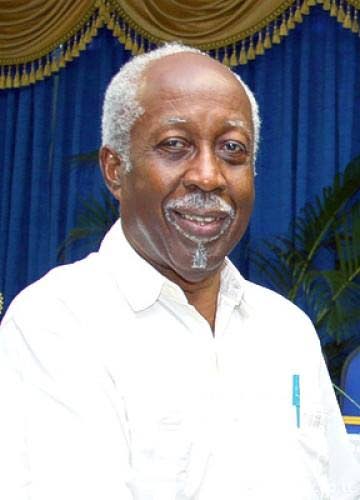An apology for slavery

REGINALD DUMAS
Pt II
WILL OTHER European leaders emulate Mark Rutte? I hope so, but I’m not holding my breath. Look at some pertinent cases.
António Guterres, the UN secretary-general, understandably wrings his hands over the state of the world. But in the several years he was prime minister of Portugal, the vanguard country in the slave-trading business, did he think to offer an apology for his ancestors’ racist rapacity? If he did, I follow in Rutte’s footsteps: I apologise.
Emmanuel Macron of France (which racially vilifies black footballers, and which one day could well be the fiefdom of Marine Le Pen)? If he does apologise, what, for instance, might be the implications for the reparations of over US$21 billion that former Haitian president Jean-Bertrand Aristide claimed France owed his country?
Rishi Sunak of Britain? Now, there’s an interesting scenario: a first-generation Briton of Indian origin apologising for the misdeeds of white British ancestors he never had, though it was the white British who later colonised and brutalised his non-white Indian ancestors?
And Germany’s Chancellor, Olaf Scholz, has just, almost contemptuously, dismissed a Polish request for reparations for Nazi decimation and looting of Poland during World War II.
A Caricom document says that in 2013 the Caricom Heads of Government set up the Caricom Reparations Commission (CRC) “with a mandate to prepare the case for reparatory justice for the region’s indigenous and African descendant communities who are victims of Crimes against Humanity (CAH) in the forms of genocide, slavery, slave-trading and racial apartheid.” (They endorsed a ten-point Action Plan for Reparatory Justice the following year.)
The document also states that the CRC “asserts that victims and descendants of these CAH have a legal right to reparatory justice, and that those who committed these crimes, and who have been enriched by the proceeds of these crimes, have a reparatory case to answer.”
You can assert whatever you like, but is the CRC’s proposal to advance that “legal right” through the International Convention on the Elimination of all Forms of Racial Discrimination the correct path of action? Does the convention, which came into force in 1969, have such retroactive effect, ethical or other?
Another Caricom document lumps European governments together as the principal perpetrators of the CAH, but pointedly notes that the CRC “operates within the context of persistent objection from European governments to its mandate.”
Such objection must surely have been anticipated. What responses had been formulated to meet it? Yet the CRC merely “calls upon European governments to participate in the Caricom Reparatory Justice Project with a view to prepare these victims and sufferers for full admission with dignity into the citizenry of the global community.” I admit I don’t understand.
As noted above, Caricom has a ten-point plan for the achievement of reparatory justice. The first of those points is a “full, formal apology, as opposed to ‘statements of regrets’ that some nations have issued.” I don’t imagine that the offending European governments will issue a joint apology, so we’ll have to see what individual governments do.
Are these apologies to be made to the Caricom heads or to Caricom people of African and indigenous descent? How is the “full, formal” criterion defined, and who decides whether the apologies satisfy it?
In all this, I remain unclear on the role, if any, of the Caricom people. In an article last August, I asked, among other things, if the CRC had been consulting with, and reporting properly to, the region’s people, many of whom, in my direct experience, have never even heard of the Caricom initiative.
Occasional media conferences and releases are fine, but clearly not enough. I’m told, for instance, that there’s a TT Reparations Committee. If so, with what communities, associations, etc has it been meeting? Has it visited Tobago, the near-totality of whose population is African slave-descended?
I also wonder how people interpret the word “reparations.” I know what Caricom’s ten points are, but to what proportion of slave descendants does the very concept of reparations appeal? I ask because some TT blacks have told me – not entirely to my surprise, I must say – that they will preserve their distance. For them, asking for reparations means grovelling before Massa with palms open and outstretched. How widespread a sentiment is this within Caricom?
Almost ten years after the Caricom heads’ decision on reparations, where has the region got to in this matter? What and where is the “case for reparatory justice?” The CRC chairman, Sir Hilary Beckles, has indicated that he looks forward to meeting with Rutte. If he does, will the Caricom people then receive a comprehensive report on the entire situation?

Comments
"An apology for slavery"